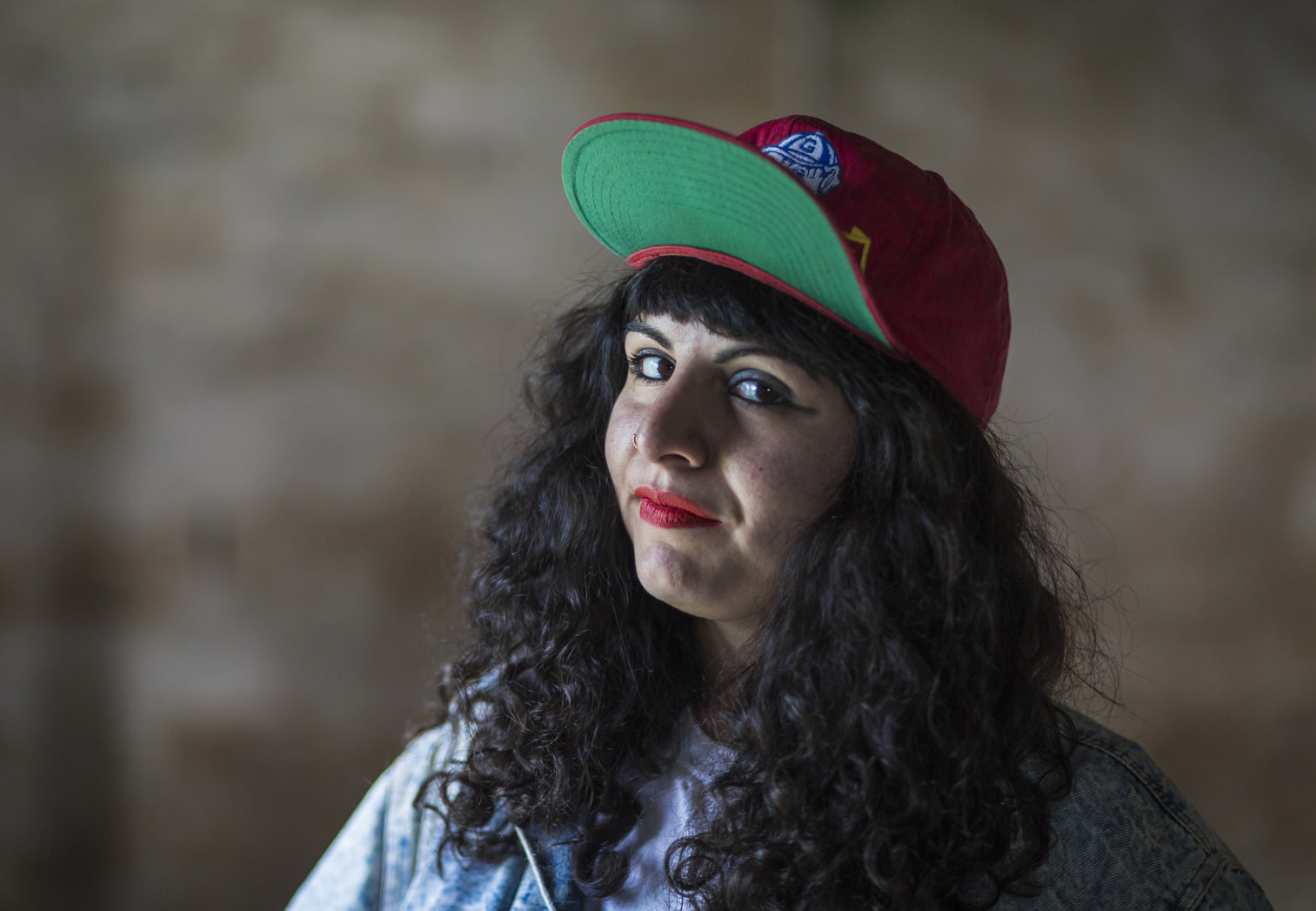
What if you just changed everything–picked up and left–and started over? What if you did it not to run away or chase something but just to fucking do it?
That’s exactly what our babe, Ayisha Jaffer, 29, did when she took a leave from her job managing bands at Punkdafunk and moved from New York City to New Zealand. But change and movement are two things that Milwaukee native Ayisha has become, if not comfortable with (because their very nature negates that), then familiar with over her lifetime, especially in her music industry career. Ayisha has done almost every music industry job you can imagine, and it all began when she was asked to organize a battle of the bands benefit at 13 years old.
“I feel like I’m not as smart now as I was when I was a 13-year-old because, basically, what happened was that I just decided to find a venue, a sound guy, a PA…I figured out how to do sponsorships. I made a battle of the bands in, like, a month and made $1,000 for Relay for Life, which was ridiculous,” Ayisha recalls with a laugh. “That’s how I fell into music. The guy that ran the venue asked me to book a monthly show after that, and he paid me. I was like, ‘Woah, I can buy a digital camera!’”
From there, Ayisha managed bands on her own, worked on labels, events, and the agent side at Windish Agency in Chicago, where she also helped establish and run their intern program. She then went back to managing bands at Punkdafunk before deciding to take an adventure break in New Zealand—to put it succinctly, if reductively. Along the way, Ayisha learned and stood by her value and interests, and seems to have never turned down an opportunity to grow and try something new. “I’m just, like, the perky, wanting to learn, ask a lot of questions, annoying as hell but don’t care that I’m annoying as hell because I want to know everything kind of person,” Ayisha says of her scrappy journey. Sounds like a babe to me.
Now, Ayisha’s break has turned into so much more. After returning to the music industry for an opportunity to work with Lorde, Ayisha has formed her own company, Greater Than Propaganda, to manage New Zealand’s Weird Together. She also started a new band, Skux, and is writing, recording, and performing her own music, which she describes as “riot grrrl inspired punk music.”
We spoke over video chat the week that she found out she needed to form her new company. Read on for more with Ayisha on figuring out what home and success means, loving sharks, living in paradise, and how to have a good-ass time.
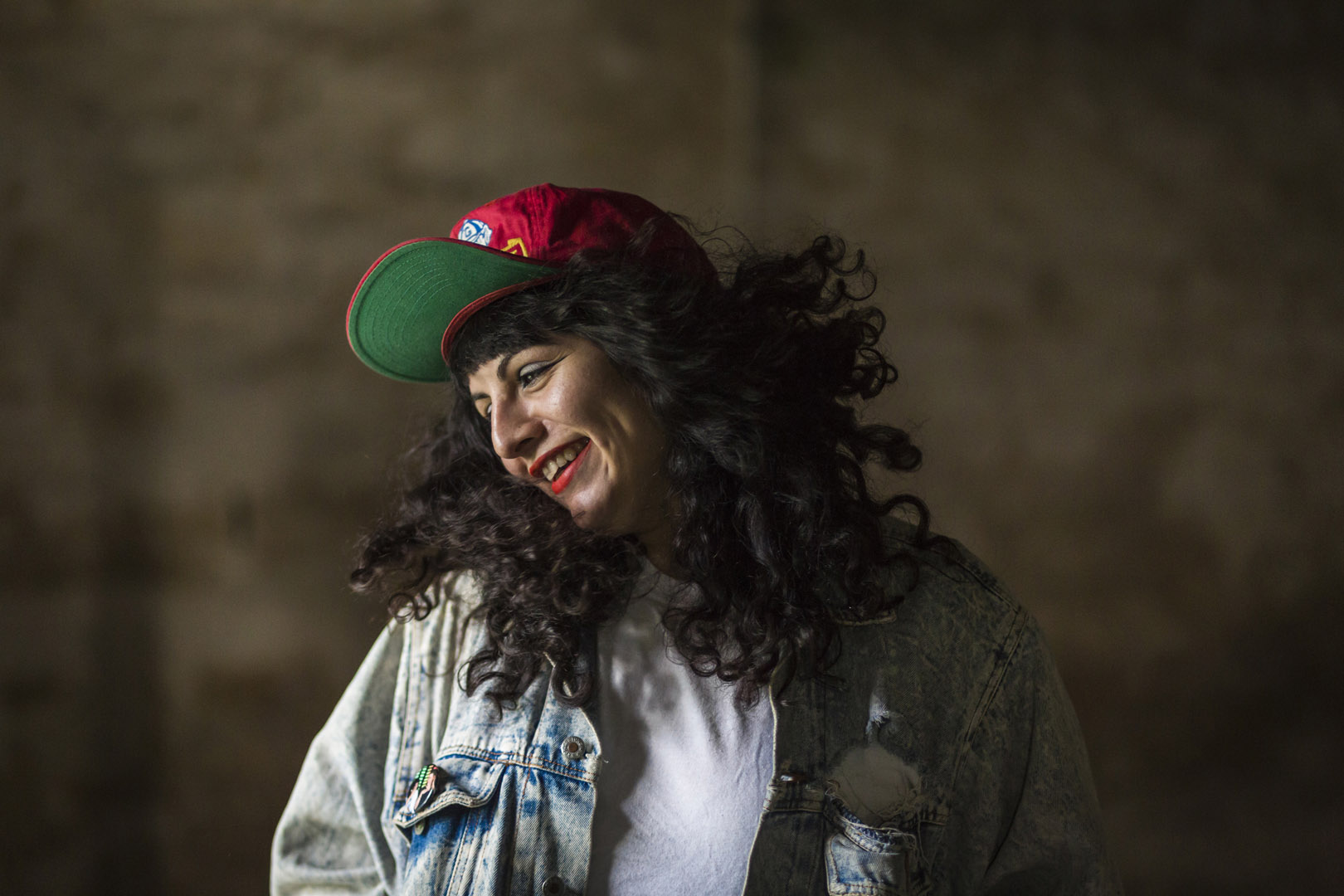
Photo by Luke Appleby
It doesn’t seem to me like you followed a traditional career path, whatever that may mean in the music world. How did you find out what you wanted to do and see your way forward?
Well, I actually wanted to be…there were two things I wanted to be. I wanted to be a music conductor, and I wanted to be a rock star, all at the same time. [Laughs] I learned theory and all of that stuff in high school—I was advanced in that way. I got into Berkley College of Music, and I didn’t go because the cost of attending was far beyond my reach, so my conducting dreams kind of went…away. But I knew I liked music business, and I didn’t know what else I wanted to do, so I went to Columbia for their music business program. My mom actually chose it, which is weird because at that point I didn’t let my parents choose anything for me—such a rebel.
I hopped around after that. I was a promoter, a booking agent, a tour manager, a manager, a DJ, and I did label work. I worked at Universal as well…I think I just kind of fell into everything, and I wanted to test the waters to see what I liked. The things that I like the most are radio, tour managing, and managing. Managing is not a clear path in general. It kind of happens naturally, where you’re like, “I really like this band. I’m going to try to hang out with the band,” or the band meets you and really likes you and won’t stop bothering you until you manage them. [Laughs] It’s kind of like courtship and dating. There’s no clear path to that, but you end up together.
But when I took that break, the idea initially was that I was going to write music myself again. I used to be in a punk band called I Eat Paint in New York. Universal tried to sign us once…the week before I moved to New Zealand. I was like, “That’s so cool! I’m moving to New Zealand. Bye!” [Laughs] But recently, when I went on tour again, I went and made three tracks with one of the guys from the band The Death Set, who were a big punk band in New York while I was growing up. Dan [Walker, of The Death Set] owns a studio called Submarine, where we recorded. So I haven’t lost sight of that, either. That clear path of making music and doing it myself is still there in my head, too. I just happen to be good at the business stuff—but the creating process is more interesting to me. I think that’s why I side with the artists or gravitate more to working more directly with artists, because that’s what I enjoy.
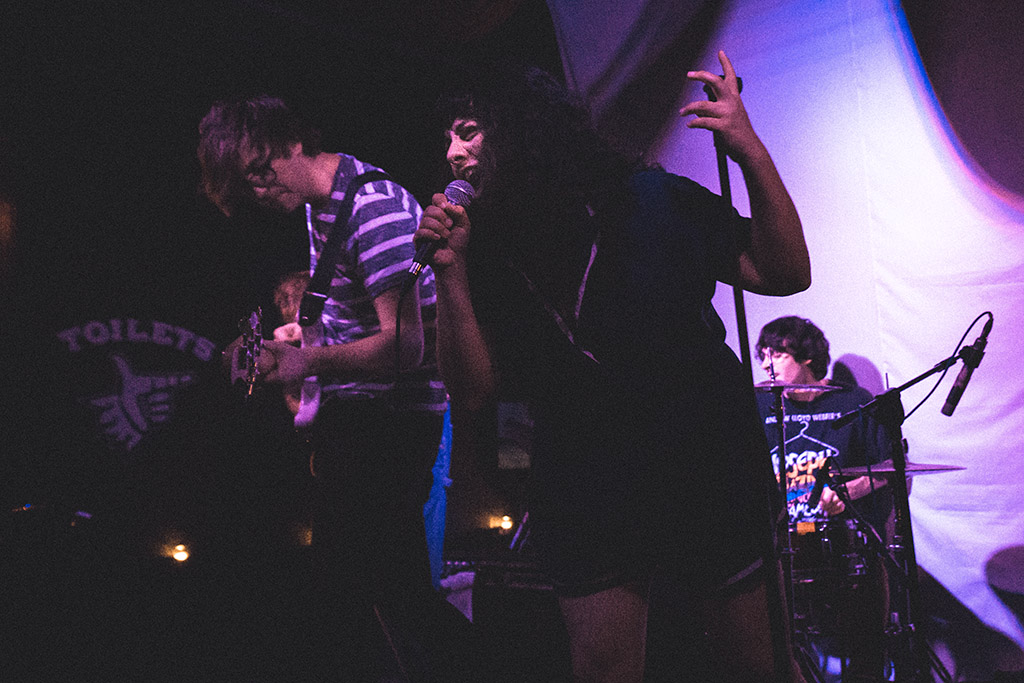
Ayisha and her new band, Skux, performing. Photo by Aini Matilda, aka matildacantdance.
It seems like being open to opportunities when they present themselves was an important part of how you got to where you are now. If you’re falling into these things, it’s because a door was open and you’re like, “Ah, fuck it. I’ll try it out.”
Like Ramona from Scott Pilgrim: just jump through the door. Yeah, that’s pretty much it. I basically got stolen. I got stolen from Windish, and I got stolen from Punkdafunk. Now I’m no longer stolen. I’m just doing my—well, I’ve just fallen into all these different jobs—
You’re randomly starting your own business this week, apparently. [Laughs]
[Laughs] I have no choice! I must start a business. [Laughs] It’s so weird for me.
It sounds like you have really tight-knit relationships with the artists you work for, and a real passion for supporting people that you believe in. What makes an artist someone that you want to work with? What do you look for?
That’s a really good question. I want to work with an artist who’s super-passionate about what they’re doing and who is smart enough to ask questions about what I’m doing. I want them to proactively ask me, “What is a PPD? What is that?” Because that means they care about, career-wise, what they’re doing and how that’s going to sustain them. I want an artist who looks at it as their job. Because it’s a fucking cool job, but it is a job. You do need to work at it every day. I guess that goes under passion and enthusiasm.
And I want to work with an artist who makes good music that I really like because, obviously, I have to want to eat, sleep, and breathe this music. And these days, the fans decide who is going to be popular. They’re the ones that choose. They choose a Spotify stream. They choose who they download. Don’t quote me on this, but I think that back in the day, labels released something like 700 or so albums a year, and that’s when they put bands together, chose bands, groomed them, put them out…Now, there are about that many releases a day because you can do it independently. Thinking about that, then, if the music is good, it fucking cuts through all the bullshit. I want to work with someone that I think is that good.
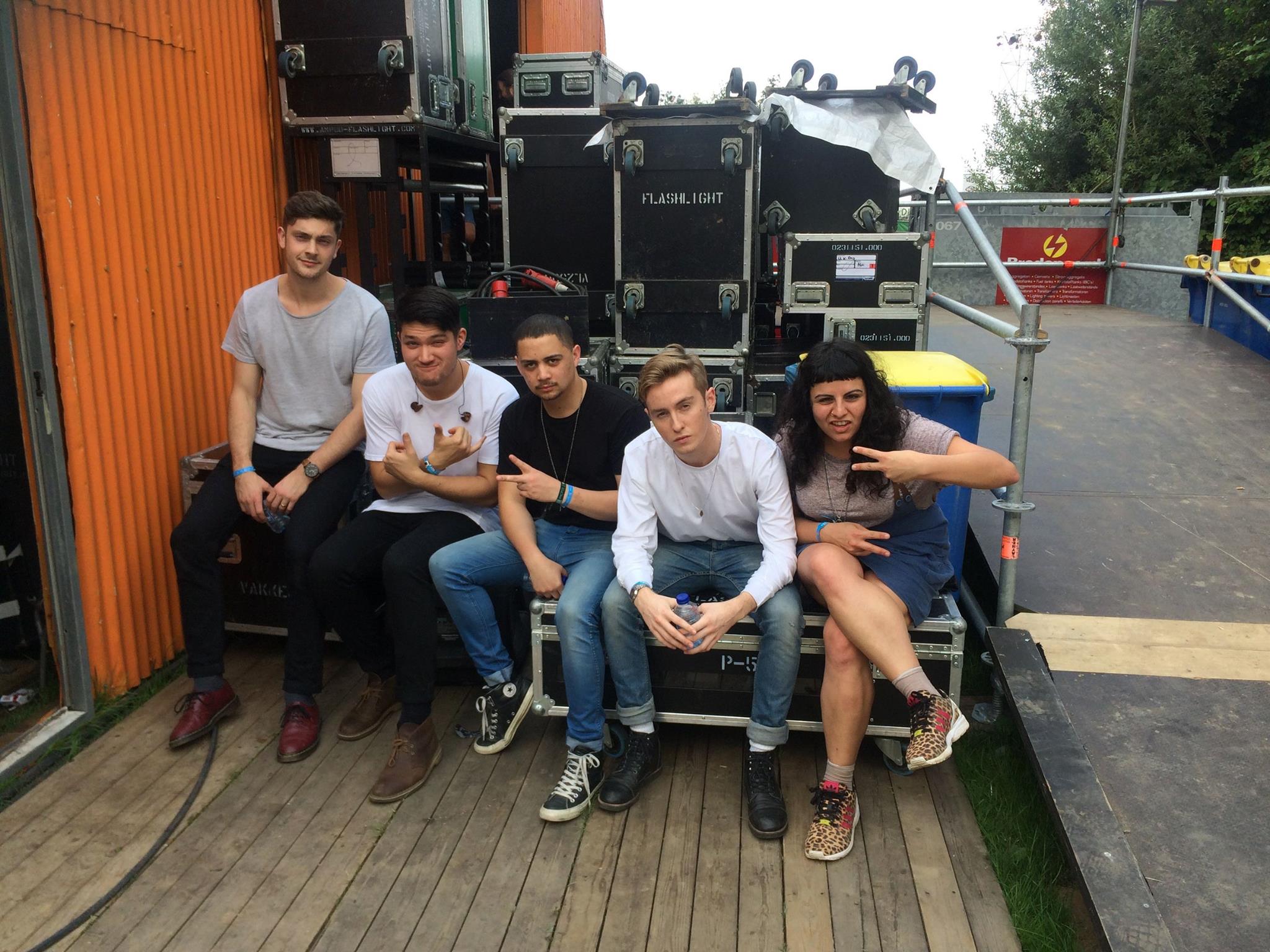
Ayisha with Thomston, who she managed.
That’s awesome. That whole having passion and work ethic to put the time in every day thing…that’s something that we all need to do, but it’s so fucking hard. How do you motivate yourself every day? Is there something that this job naturally does for you that helps you get going each morning?
Well, for my new project of managing bands on my own—because this new company I’m working with is like, “Surprise! You need to have a company now!” [Laughs] It’s just so funny to me. My life has exploded in the past three days. But anyway, I think that for this new project, I kind of have to shout out to Nick D from Weird Together. Every day I have some form of contact with him. Whether it be Facebook message, phone or text message, I know I’m going to hear from Nick D. And he’s always passionate about what he’s doing and so appreciative of what I’m doing that—subconsciously—it’s a daily reminder that this is a great thing; that we’re doing great things. I think Nick is, like, my alarm clock for that. I only just realized this right now. [Laughs] I kind of knew that, but…from a general standpoint, it would be the artist motivating you. Management is such a thankless job that, if you get any appreciation, it really does re-bug your motivation to want to do things. Nick is super great at that.
It’s so great to have someone like that in your life—especially if it’s someone you’re working for, but even a friend or whoever that is constantly checking up and keeping you in it. Not to switch topics completely, but I wanted to ask you a bit about your adventure break. What led up to you deciding you needed a sabbatical, and how did you let yourself have it? I think a lot of people need time but can’t have it, or if they can, they don’t go there.
Yeah, and they end up having a kid or family and they regret never traveling and blah blah blah. I don’t want to be one of those people. I’ve always had a sense for adventure. I always made people do stuff. I always wanted to do things that were crazy. I had always fallen asleep when I watched Life Aquatic, and then I finally got up early one morning and watched that movie, and it made me go, “Fuck, I need to go. I need to go to New Zealand.” I applied for a visa—because you can get a visa if you’re under 30 for a year—so I had one, and New Zealand called and was like, “Hey, you can only use that for a certain amount of time, so…are you coming?” I was like, “Shit, I forgot I applied for that!” I applied for it in my quarter life crisis, I think. [Laughs] Everything was going great in New York. I was going to become more of a role in the company I was in, and my band was going to get signed, apparently, and I was dating, so that was cool. [Laughs] And uh…I just decided to go. Let’s turn the page on life and try something completely opposite for me because I feel like I’ll learn things about myself. I wanted to try different things before…because you get stuck in this routine. And I just wanted to have an adventure, I guess. It was nice to take time for myself and do things for myself.
Like hiking…I was so unprepared. I climbed a mountain in, like, a fur coat and fancy boots and stuff, and I only brought a bottle of water and nuts. [Laughs] I was crazy. But I loved it. I loved it, but I was ridiculous. [Laughs] Um…and I still did music in this little shack. I did a radio show in a little shack on this island where people knocked on the door for requests.
That’s amazing!
I got my dive license. I hung out near volcanoes and went to weird hippy parties and stuff—just weird stuff I would never do. It gives you a whole new perspective on life, and I felt so much more refreshed and probably the happiest I’ve ever felt, just doing something like that. It’s cool to know that there’s a whole other world of travelers out there. Now I get the traveling mindset, and I get what people who are traveling like that are going through and what they’re thinking and how their mood might be and stuff. It’s cool.
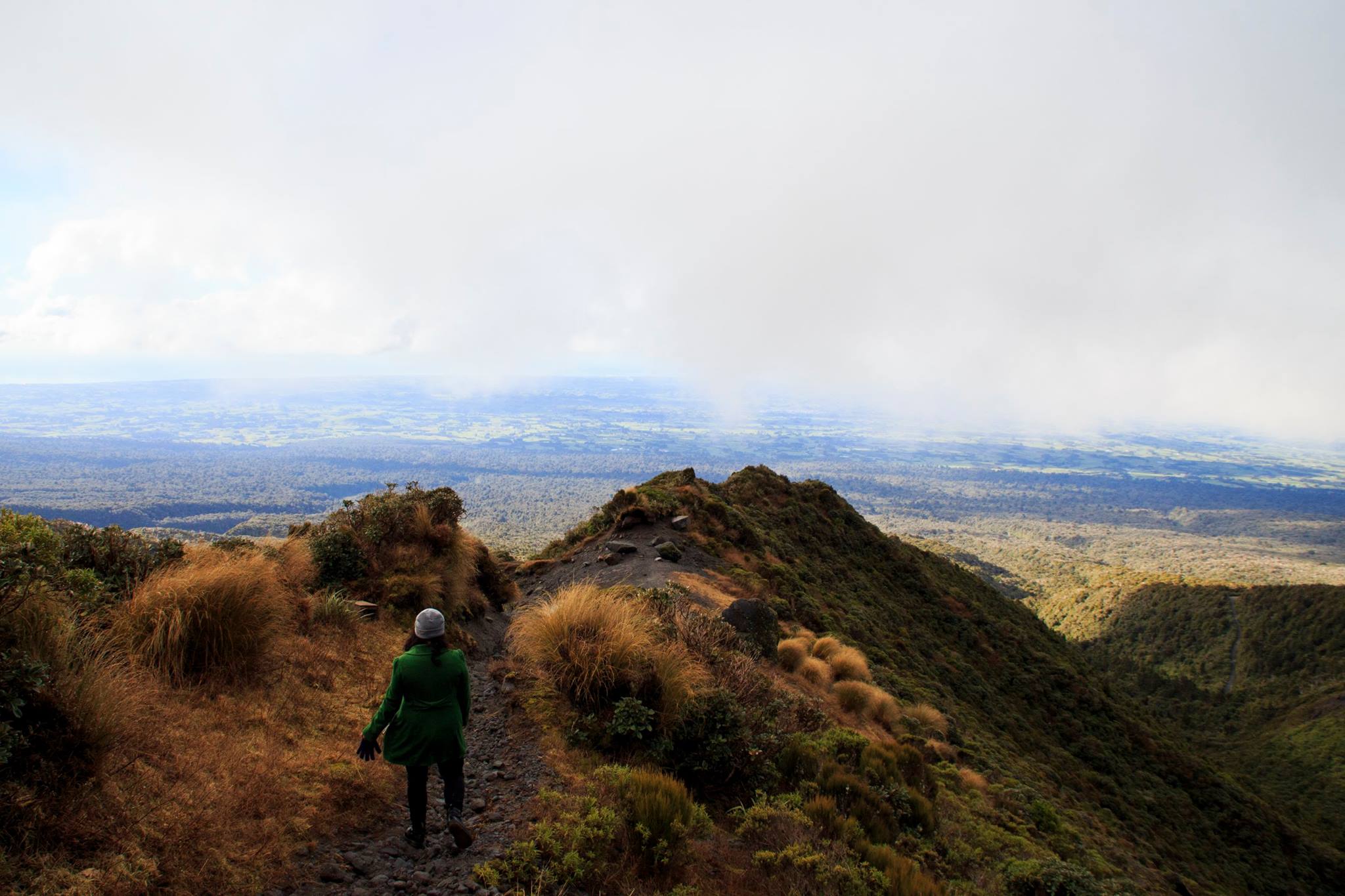
Ayisha adventuring. Photo by Jacob Lustig.
I heard that I’m supposed to mention sharks to you because apparently you’ve been obsessed with sharks forever, and now you’ve been able to be with them.
[Laughs] Yes, I am obsessed with sharks. I love sharks so much. I don’t know why. I don’t really know where it started from, but I came to New Zealand partially because they have great white shark cage diving, and unfortunately, when I went just now, they were not around. Last season, they were there every single day. My dreams are crushed a little bit. [Laughs] But I will go back, and I will get my shark dive in. I’m obsessed with them. I know all kinds of facts. Someone thought I was a scientist on the boat. [Laughs]
I like how you talk about your adventure break as not only a chance to get to see something new, but also to see new parts of yourself. I feel like the benefit of doing something completely different is that you realize that you can do that and still be you or be a new part of you. We often don’t give ourselves enough credit in that way, I think.
I think the biggest lesson I learned from doing that is that I can do anything, like shark cage dive, hand glide, be in the mountains alone…like I can do anything. No country or thought is inaccessible. You can just get on a plane, and you’re somewhere else. It’s that easy—with the money, of course—but it’s that easy, really. It’s just a moving map.
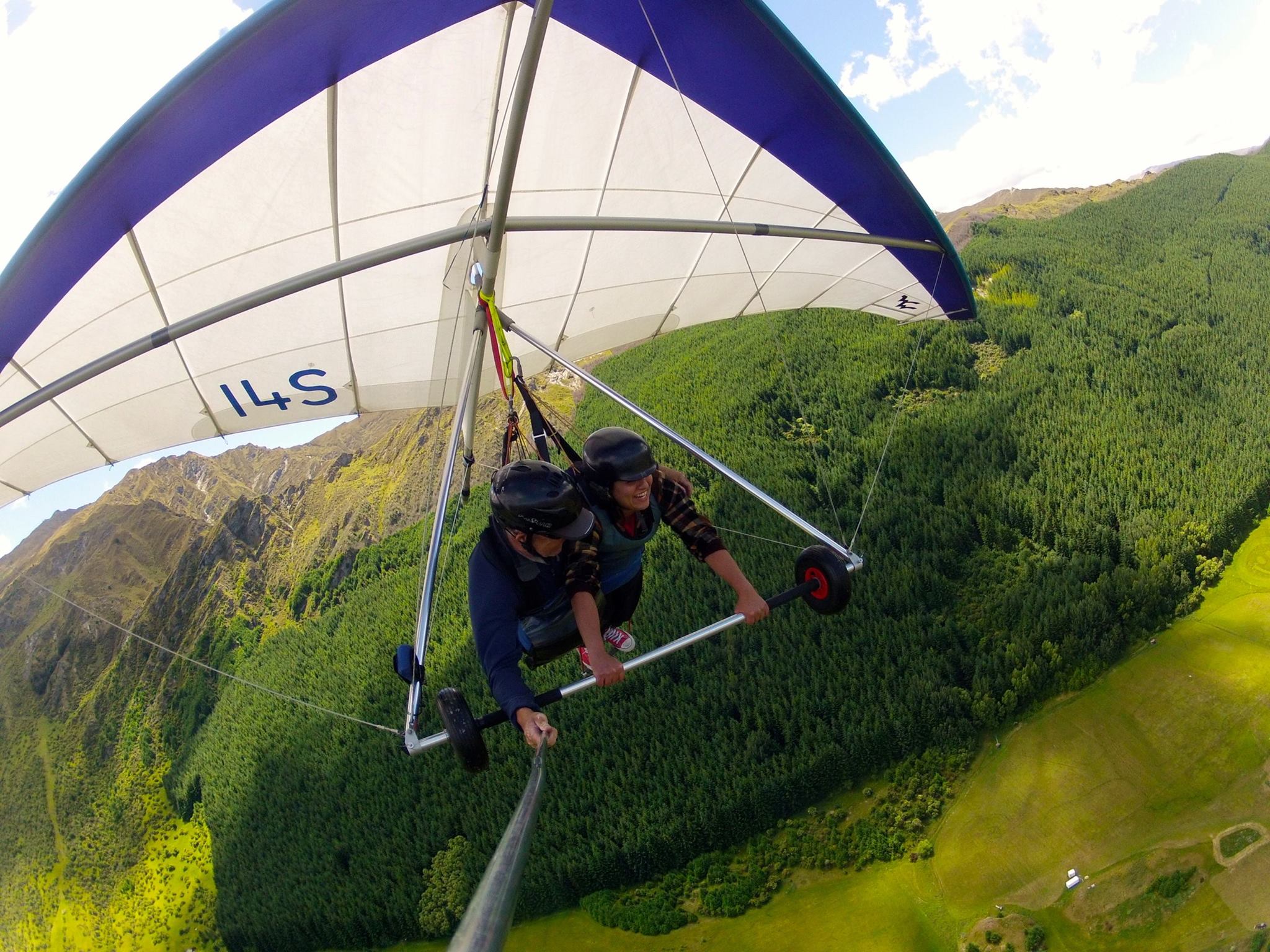
Ayisha, born to handglide.
What’s it like starting over in a completely new country? How did you decide that was going to be your new home base?
Um…I think I still haven’t come to terms with or decided that this is going to be my home base because I never thought about it, like, “Oh New Zealand’s going to be home now.” For me, I start to think of a place as home or a home base when I have a partner or am dating someone…Home base is hard for me to think about because I still think that, at any point, I could go to New Orleans, or I could go to—I had in my head, before I met my last partner that I thought could possibly work out or whatever, that I was going to move to Berlin. So that’s still in my mind. I’m still not 100% sure that this is home base, but for now it is. I haven’t chosen that yet, if that makes sense, I guess?
But, to counter that a little bit, yesterday I went to my first show here after being away for a long time, and I knew almost every single person in the room, and that made me feel like, “Oh, this is kind of home.” And that’s cool. It’s cool that I have made something of a home here. I’m just kind of seeing what happens. If it’s good, then I’ll stay, if it’s not, then I won’t. I guess I just don’t think of anything as a home base anymore since I travel so much…I don’t know. I’m in a weird state for that one. I can’t answer that one properly. [Laughs]
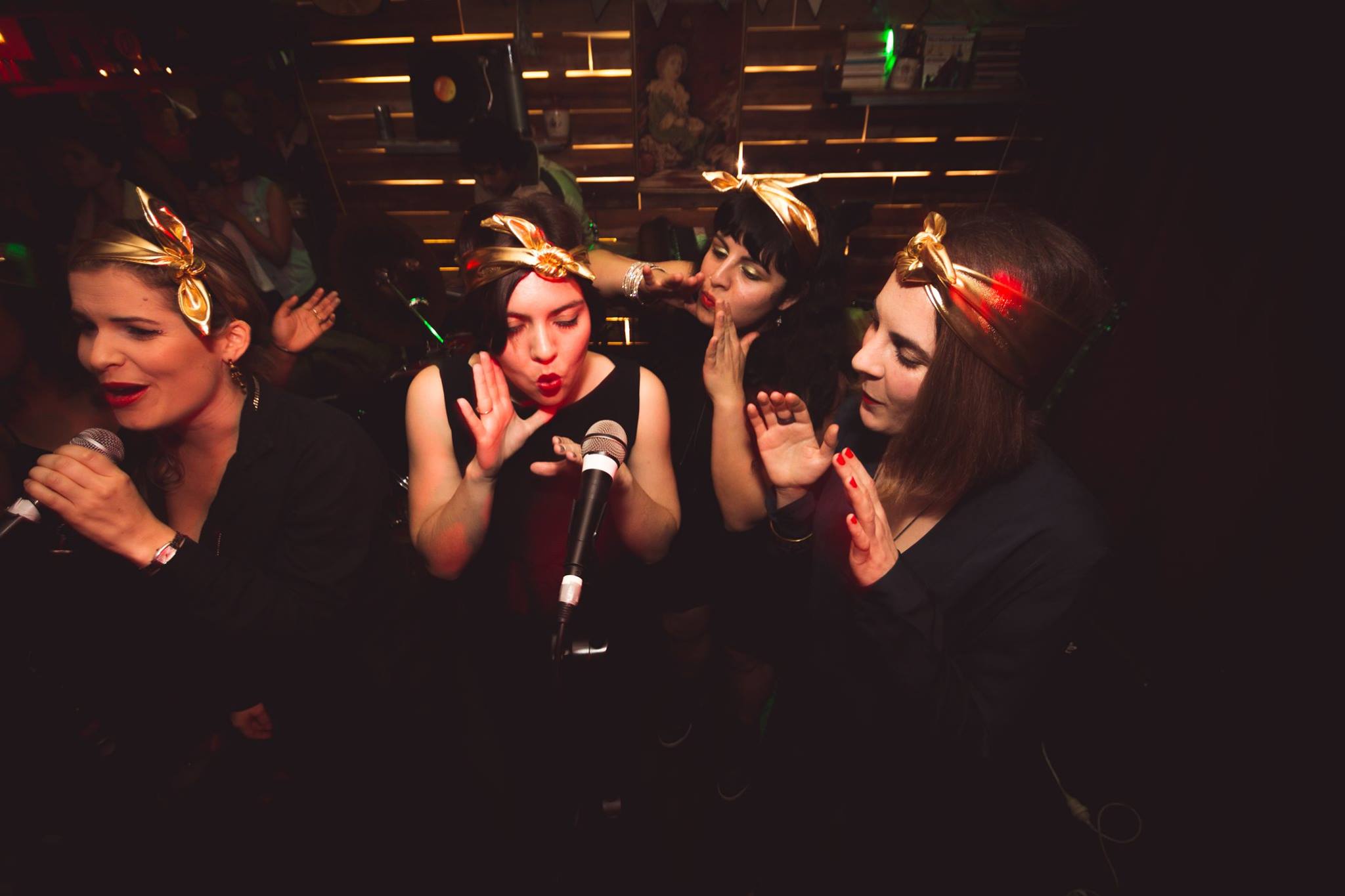
Ayisha and The Swagettes in New Zealand. Photo by matildacantdance.
It’s interesting to me that you tie the idea of home to love or a partner. Can we talk more about that? Because I can see two sides of a reaction to that. Like, one, some might say that’s a dependent way of thinking or like you’re putting yourself on pause to wait for someone or something. But at the same time, I do think it’s very true. “Home is where the heart is.” [Laughs] Or really, home is people. The people you love and want to be around.
Yeah, I mean, I guess it’s not even necessarily “partner,” right? Home is people, what you just said, I think is exactly correct. Like, I still consider my home to be New York because all of my favorite support crew of humans are there. I have friends all around the world, and I love them all dearly, but the majority of them are in a pile in New York. [Laughs] So that’s home to me. But when I had a loving, supporting partner here, I made more efforts to make this my home because…you kind of give and take, right? You compromise. I think that’s maybe why the relationship didn’t work well…because I’m not a person who stays in one place…Okay, maybe this is a better way to start: I’m not a person who stays in one place, and so, my partner, if I had one, presumably would travel with me, and I’d find a home in that person because they’d be my support, I’d be their support. It’s equal. It’s not dependent. Like, I actually do want that in my life, whereas I know some people don’t believe it, don’t need a person, whatever. I just want that. It’s really fun to have someone to riff off of, and I like having people around all the time, which is why I always live with, like, ten people. [Laughs] I guess, yeah…a person is more reliant than a place for me. So that’s why I kind of consider that a home.
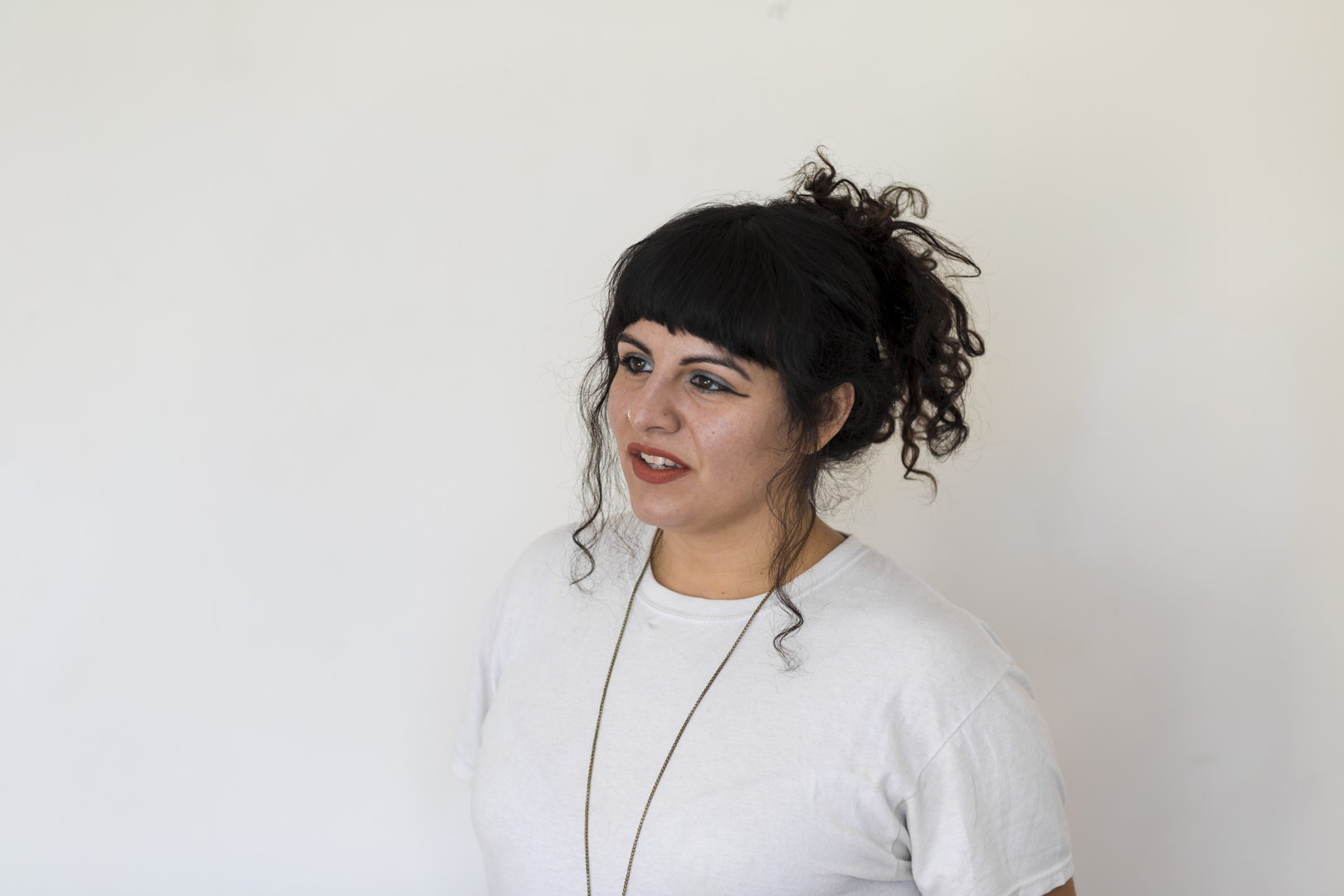
Photo by Luke Appleby
That makes sense to me. Can we just take a minute to talk about what New Zealand is like? My only frame of reference is Lord of the Rings, and you’re telling me about all of these magical find-yourself adventures and people and such. [Laughs] I want to be able to picture it!
What is New Zealand like…it’s not what you think it’s like, probably. People lump New Zealand and Australia together, but they’re actually opposite. Opposite terrain. The music charts are completely different, which blows my mind. I’m trying to change that. [Laughs]
New Zealand’s landscape is probably best described as paradise. It has every terrain. It has jungle. What we call “bush” is jungle, essentially. There’s all these ferns and palm trees and lush forests and all of these exotic birds. There are these beautiful beaches. You can see right through the water, which is like an emerald color. Most of the beaches—well, they’re all different—but a lot of the beaches have mountain coast and then either black sand or white sand, per the volcanic stuff. There’s shit tons of volcanoes. There’s like 60 dormant volcanoes in Auckland itself. We just call that Mount Eden or Mount This, and I actually thought they were mountains or hills, and then you go to the top and look down, and there’s like a cone inside. The centerpiece of Auckland is an island volcano called Rangitoto or I like to call it Rangi-totes. [Laughs] There are other islands off of Auckland city and around the coast that you can take ferries to. Some of the volcanos are active, so there’ll be, smoke coming off of them. There are super red or super blue pools of water near them that are 250 degrees Celsius that you never want to touch. There’s even a beach called Hot Water Beach where you dig in the sand until you find a hot kind of steam from this volcano that’s just become dormant, and then you wait for the tide to come in to fill up this pool you’ve dug, and then you have a hot tub.
What?! That’s amazing! Take me there now, please.
It’s pretty much the most amazing terrain you can have. There are redwood forests, the beaches…just anything you can think of that’s like paradise. It has the most beautiful views, and you’ll be the only one at the beach. No one else will be at the most beautiful beach you’ve ever seen. And on some beaches, seals are always there. There are dolphins that stay in Curio Bay, and you can swim with them…like, shit like that. You can see stingrays. I’ve seen orcas in the Auckland bay. It’s just crazy. It’s a really beautiful place.
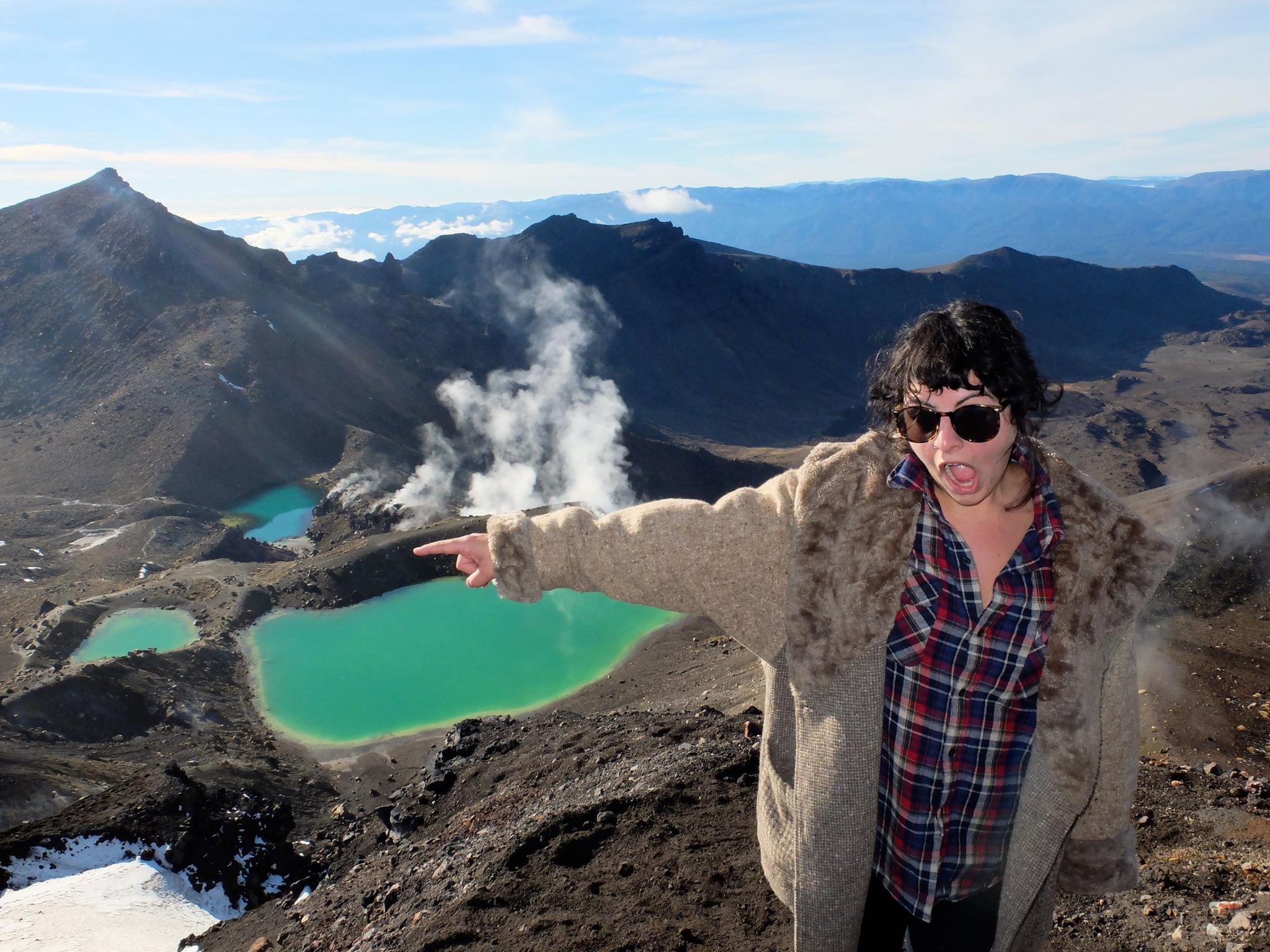
Ayisha in paradise.
That sounds so fucking incredible. Beyond the paradise of the nature, what’s the culture like there? What are the cities like, compared to the US?
Auckland is the biggest city in New Zealand, and mind you, there’s just four million people in all of New Zealand. I think there are one and half in Auckland, and I believe it is the smallest city I’ve ever lived in. I think Milwaukee is bigger—I think so. [Laughs] It’s like a village. Sometimes it’s a good thing, and sometimes it’s a bad thing. You can get more things happening. You can build relationships and have a community. But I do get why people leave. They need creativity, they need more collaboration, and they need to see more things. But I’m an outdoorsy person, so I think what’s cool about Auckland is that you can get out of it in, like, 30 minutes, and be in the middle of the mountains or on a beach or whatever. That’s really cool.
I really want to visit now!
You should come! I’ll take you around.
Yes! Especially because you’re an expert at having a good time.
Yes, I like having good times. It’s my favorite thing to do. [Laughs]
I mean, it’s kind of your job, as you told me before. You’re touring big artists around New Zealand, taking people out…do you have any tips for how to have an excellent time? [Laughs] That may be a silly question, but I love people who pride themselves on being party-starters, and I want to add their secret weapons to my own party-starting arsenal.
[Laughs] I think the hardest thing about living in New York—even living in Auckland, man—is getting people out of their houses to do anything. A lot of people are like, “Well is anyone going? Who’s going? How many people are going?” And you’re just like, “Ugh! Just get out! Just do it!” Like, one and two is at least something, and everyone else will follow.
Tips would be to just say yes to everything—honestly. That’s kind of what I did. I want to try everything. I want to experience everything. I think my ethos is that’s kind of what life’s about. Even if it’s not something I’d normally be interested in, at least I tried it out and checked it out, and maybe it’s cool or I’ll meet someone or it’ll be interesting in some way. It’s also a detriment to me because I get not as much done. [Laughs] But I want to have a good time, and I think that’s what life’s about, and I think we can’t forget that.
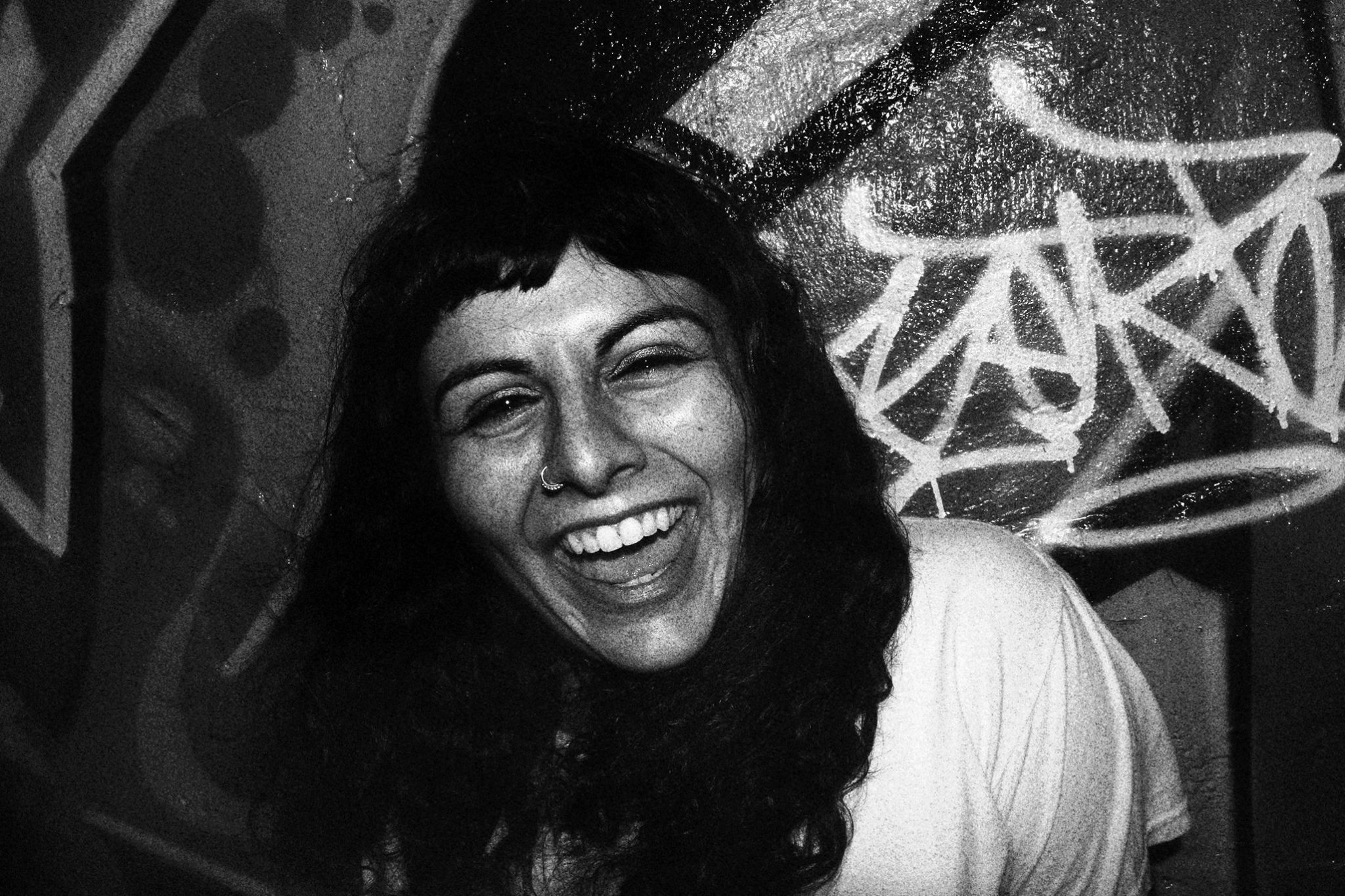
Ayisha being profesh at having a good-ass time.
Before you go, I wanted to ask you two of our favorite questions for babes. First, was there a time when you thought that what you wanted to accomplish wasn’t possible? Where you had a moment of almost crippling self-doubt that almost kept you from doing something you wanted to do? How did you get over that moment and end up where you are?
That’s such a good question. My initial instinct is to say no, I never thought anything was impossible. I think that’s true, but there was a probably a point where I thought something wasn’t going to work…let me think…I think, for me, that that feeling of impossibility kind of happened when I first started going to college—or uni, as they call it here—because I wanted to be a music conductor and study performance. I went to Columbia, and I tried out the programs that were supposed to do that, and I knew more than what they taught, and I decided to just throw it all away and just focus on music business. I don’t really regret that, but I’m still dealing with that decision because, passionately, I would like to pursue making my own music. I’m still focusing on that and how I’m going to maybe go back to a program on the side and do more songwriting and theory and get it back.
I guess being proactive and making time—which I’m really shit at—is what I’m trying to do…in the midst of making a company. I think I’m going to dedicate at least one day that’s my day to focus on making music so that I can continue to do the things that make me happy in music, too. My long-form challenge is actually keeping focus on what I’m passionate about. Even though I’m passionate about other people’s careers, I need to focus on what, initially, made me interested in music to keep that creative, excitement flow inside of me, too.
My last question is: do you consider yourself successful, and how do you define success?
I consider myself in transit to be successful. Success to me is—and I know this is going to sound cheesy—happiness and contentedness with what you’re doing. But not only contentment. It can’t be just that. You have to be excited about what you’re doing regularly. Passionate. Driven…and inspired to do things beyond what you’re doing already. I think success is like a tree, and the trunk of that tree is the basis of what makes you inspired and happy and creative, but it needs to continue to grow branches so that your life can continue to be interesting, passionate, and exciting. You can’t have a stagnant tree. I mean, you can, and that’s basically a stump. Stump’s not a good word. [Laughs] That’s my idea of success: happiness that inspires continuing innovation…also that you can at least eat. That’s why I say I’m in transit because I have no idea what kind of money I’m going to be making anymore. Or, as I’m starting with these new relationships, what kind of relationships they will be. But I believe in them, and I believe that they will inspire other branches on this tree. That sounds so cheesy [laughs] but that’s what I define as success, I guess.
You can find out more about Ayisha’s company, Greater Than Propaganda, here. Follow Ayisha on Twitter and Instagram, and listen to her band Skux on Facebook or Bandcamp.
Feature photo by Luke Appleby

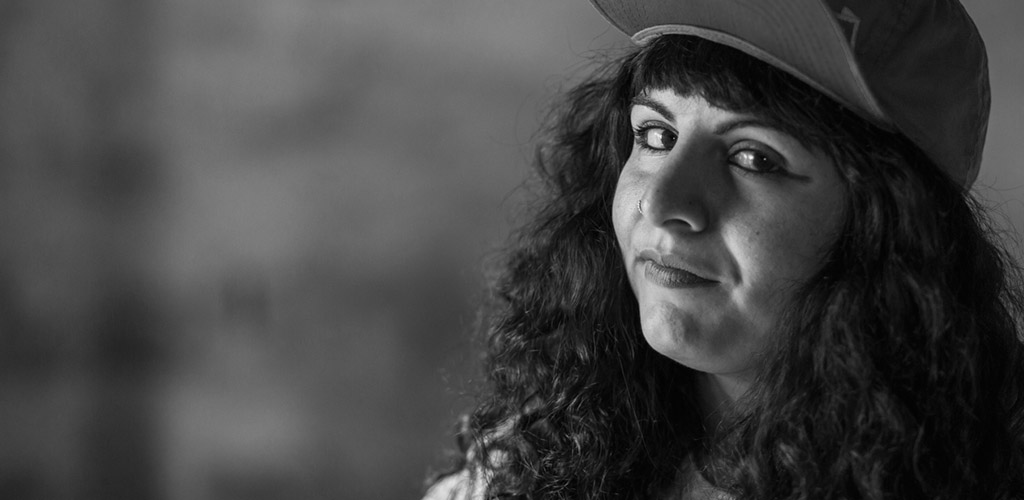
No Comments